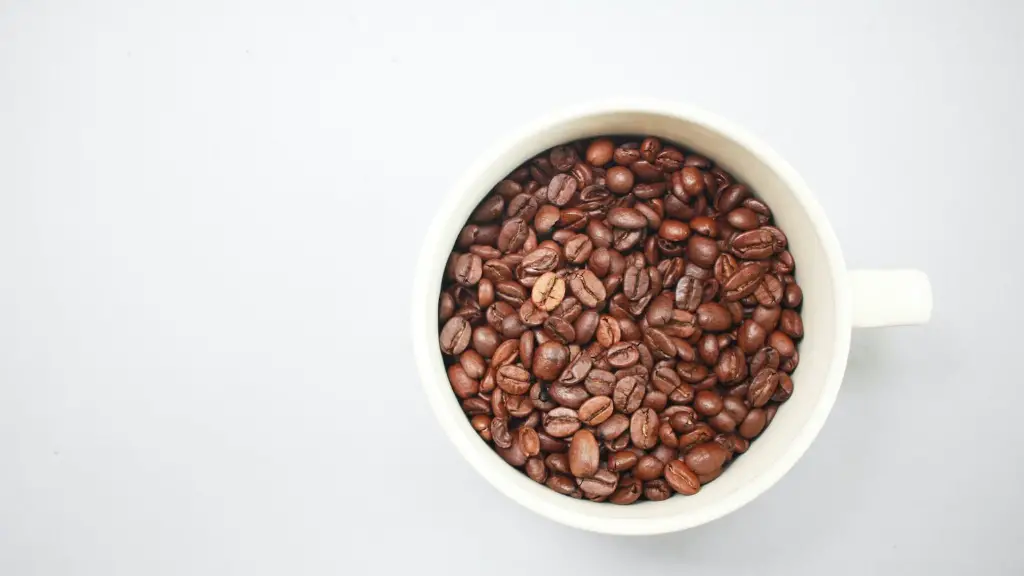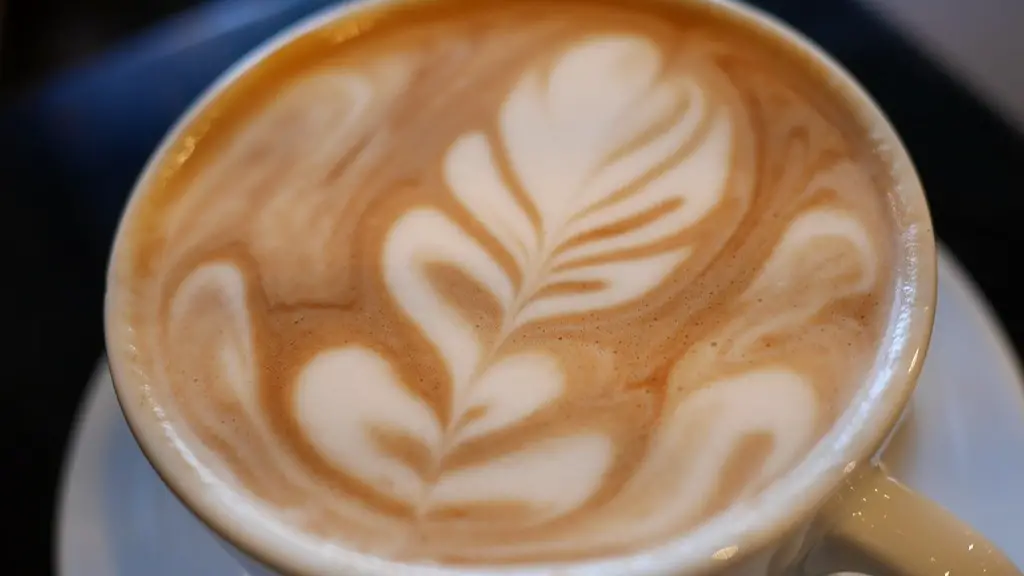Why Is It Good To Drink Coffee?
An ever-growing body of science is showing that there is much more to coffee than just a caffeine boost. Studies have long shown that drinking coffee can have multiple health benefits, such as reducing the risk of disease, improving cognitive function and even boosting physical performance. Let’s explore why drinking coffee is good for you and dive into the science behind it.
The active ingredient in coffee, caffeine, is a natural stimulant and has been shown to cause a range of effects on the body. The most notable effect is increased alertness, as caffeine is known to reduce fatigue and make it easier to stay focused. It also stimulates the central nervous system, improving reaction time, decision-making and general cognitive performance. Additionally, caffeine has been linked to improved metabolic function, which helps the body burn stored fat for energy. On a longer-term scale, drinking coffee regularly has been linked to lower overall mortality risk, along with a reduced risk of heart disease and stroke.
We know that caffeine is a stimulant, but why is it so beneficial? Studies have shown that consuming coffee can boost dopamine levels, which is associated with improved mood and decreased levels of stress. Furthermore, epidemiological studies have shown that moderate coffee drinkers have reduced risk of depression, and caffeine has been linked to improved mood and alertness in those who are already suffering from depression or anxiety.
Drinking coffee has also been linked to increased physical performance, as caffeine can boost anaerobic and aerobic performance. This is mostly due to an increase in the production of epinephrine and other neurotransmitters, which help the body mobilize more energy from its reserves. Additionally, caffeine can reduce the rate of perceived exertion, helping athletes push harder and longer during workouts.
Of course, there is a such thing as too much caffeine, and it’s important to monitor your intake. Too much caffeine can lead to insomnia, headaches, restlessness, irritability and a host of other physical and mental issues. It’s important to find the right balance, as drinking coffee in moderation has been linked to increased longevity and overall health.
The Differences between Brewed and Instant Coffee
Brewed coffee is made by pouring hot water over ground coffee beans, allowing the oils and compounds to be extracted. This produces a richer, more intense flavor than instant coffee, and also allows for more compounds to be extracted. For example, brewed coffee contains more polyphenols and antioxidants, which have been linked to lower risk of heart disease and reduced risk of cancer.
Brewed coffee also contains a range of minerals, such as magnesium, potassium and zinc. These can help maintain a healthy metabolism and electrolyte balance, which are both beneficial for physical and mental performance. Overall, brewed coffee comes out on top when it comes to health benefits.
Instant coffee, on the other hand, is made by dissolving roasted and ground coffee into hot water. This process generally produces a milder flavor than brewed coffee, and is also lower in caffeine. Additionally, instant coffee is often made from lower quality beans and lower quality processing, which results in fewer beneficial compounds. In short, while instant coffee can provide some of the benefits of coffee, it is not as effective as freshly brewed coffee.
Alternatives to Coffee
If you’re looking for a coffee alternative, there are plenty of options. One of the most popular is matcha, which is made from ground green tea leaves. Matcha contains caffeine, as well as high levels of antioxidants, polyphenols and other beneficial compounds. It is also lower in caffeine than coffee and can be mixed with other ingredients, such as almond milk or honey, to create a delicious and nutritious drink.
Another popular alternative is Yerba Mate, which is a popular South American beverage made from the leaves of a specific species of holly. Yerba Mate is rich in antioxidants and polyphenols, and is known for its energizing effects. It also contains high levels of important vitamins and minerals, such as manganese, zinc and magnesium, which can support a healthy metabolism.
Finally, there are some herbal alternatives to coffee, such as ginseng and guarana. Both herbs are rich in active compounds that can provide an energy boost, and both have been used for centuries as natural stimulants. Additionally, both herbs are high in antioxidants, vitamins and minerals, and can be made into delicious teas with minimal effort.
Coffee and its Impact on Sleep
Coffee has a stimulating effect on the body, but it can also disrupt sleep. This is mainly due to caffeine’s effects on the body, as it can take up to 6-8 hours for the body to fully metabolize the caffeine consumed. Because of this, drinking coffee too close to bedtime can disrupt one’s sleep cycle, resulting in fatigue and impaired performance the following day.
However, this doesn’t mean that you have to cut out coffee completely – instead, aim to restrict your coffee consumption to earlier in the day and consume less in the afternoon and evening. Additionally, some people are more sensitive to caffeine and may need to restrict their intake even further. Monitoring your caffeine intake and ensuring you get sufficient sleep is the best way to ensure you get the benefits of coffee without the disadvantages.
Coffee and its Impact on Weight Loss
Coffee can also be a great addition to a weight loss regimen, as caffeine has been linked to increased metabolic rate and improved performance during exercise. Some studies suggest that caffeine can increase fat burning and boost metabolic rate in the short-term, but the long-term effects are still in question. Additionally, the amount of caffeine needed to cause these effects will vary from person to person, so it’s important to experiment and find the right balance for you.
However, it’s important to remember that coffee is a diuretic, meaning that it can cause dehydration. This can result in decreased energy levels and impaired performance, which can make it difficult to stick to an exercise regimen. Staying hydrated is key, so it’s important to drink plenty of water and other fluids throughout the day.
Conclusion: drink coffee in moderation and pay attention to your caffeine intake. Remember that it can have positive effects, but it can also have negative effects. It’s important to find the right balance between the two and experiment to see what works best for you.
Coffee and its Impact on Health
Coffee has a host of health benefits, from improved mental performance to lower risk of disease. Studies have shown that daily coffee consumption has been linked to decreased risk of type 2 diabetes, Alzheimer’s, Parkinson’s and certain types of cancer. Additionally, coffee contains a range of bioactive compounds, such as minerals, antioxidants and polyphenols, which can all help support overall health.
However, it’s important to remember that the health benefits of coffee are mostly seen in moderate consumption. Too much coffee can lead to insomnia, headaches, restlessness, anxiety and other physical and mental issues. Similarly, pregnant women and those with certain medical conditions should restrict their coffee intake and speak to their doctor before making any changes to their diet.
How to Make the Perfect Cup of Coffee
Making the perfect cup of coffee can be intimidating, but it doesn’t have to be. Start by choosing quality coffee beans – in general, the darker the roast, the more intense the flavor. For maximum flavor and freshness, try to find locally roasted beans that have been roasted within the last two weeks.
Once you have the beans, the next step is to grind them. This is an important step, as grinding the beans too coarsely or too finely can affect the flavor. A good rule of thumb is to use a medium grind for most types of coffee makers. If you’re using an espresso machine, a finer grind is recommended.
Once you’ve ground the beans, measuring is the next step. As a general rule, use 2 tablespoons of ground coffee for every 6 ounces of water. This can be adjusted up or down, depending on how strong you like your coffee.
Finally, it’s time to brew. Different coffee makers require different techniques, so be sure to consult the instructions to get the best results. The key to a great cup of coffee is to use the right temperature. Most machines have a setting that is between 195 and 205 degrees Fahrenheit, but some require a lower or higher temperature.
Conclusion
Drinking coffee can have a number of health benefits, but it’s important to remember that too much is not a good thing. It’s important to keep your consumption in moderation, as well as to pay attention to your caffeine intake. Additionally, making the perfect cup of coffee requires some trial and error, and understanding the basics of grinding, measuring and brewing is key to achieving the perfect cup.





